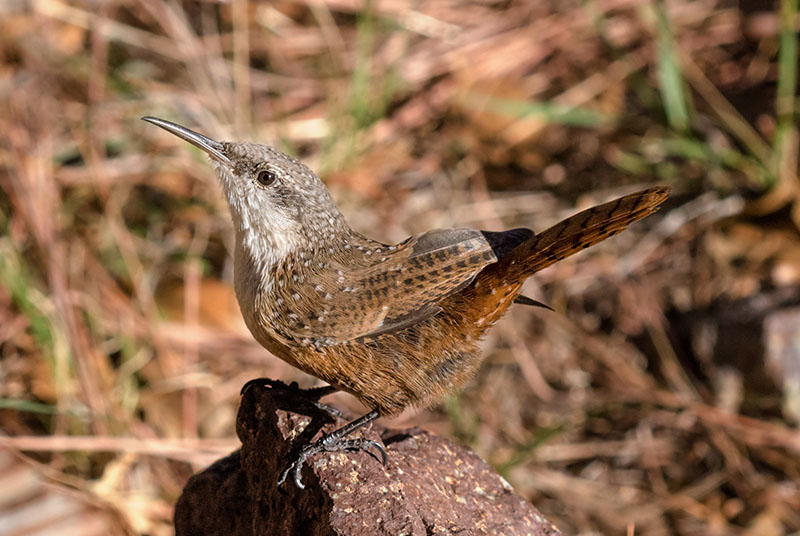
Canyon Wren from 2015
This page is dedicated to bird pictures from the Davis Mountains. The birds up there don't seem to be used to people -- big surprise. It's hard to get close. But, I like a challenge, and getting decent shots of the birds is certainly that. Many thanks to Gil and Christina for helping with identification! My primary bird page is here. Roadrunners have their own page here.

This little guy made the rounds each day, no doubt enjoying some tasty spiders that were trying to set up shop around the porch. Thanks to Gil for the ID.
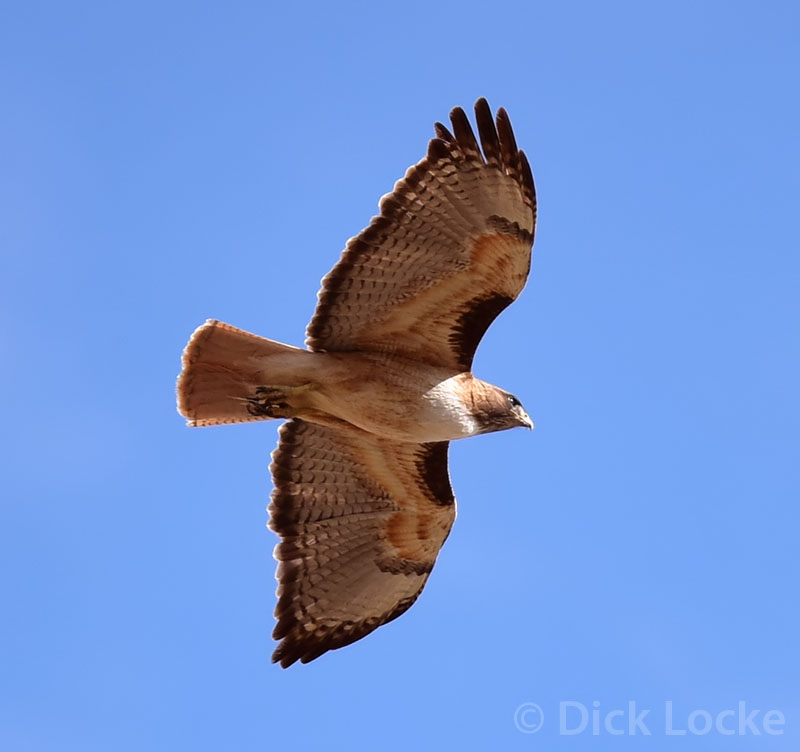
Davis Mountains Spring 2016.
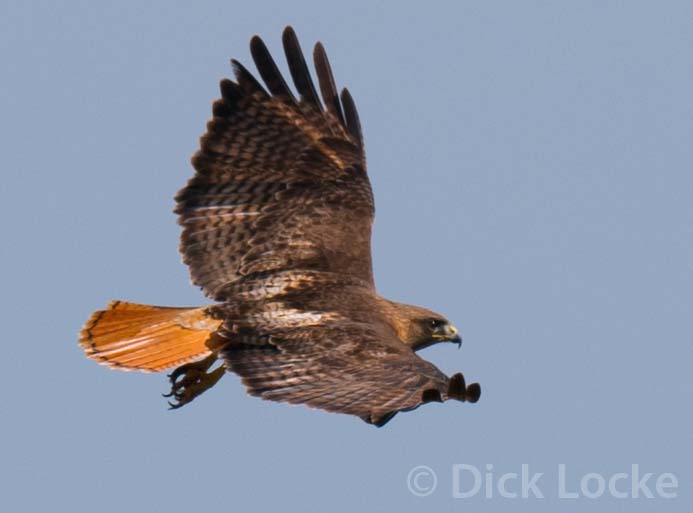

He's a real pretty boy!
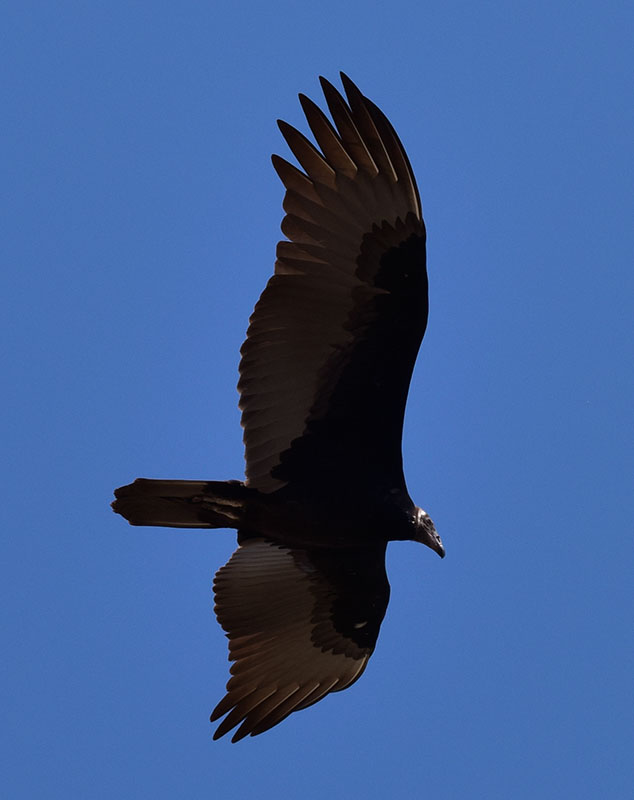
I caught this one while walking around with the 200mm Nikon macro lens... But the bird flew by "close" and I was able to grab this image from the 2015 trip.
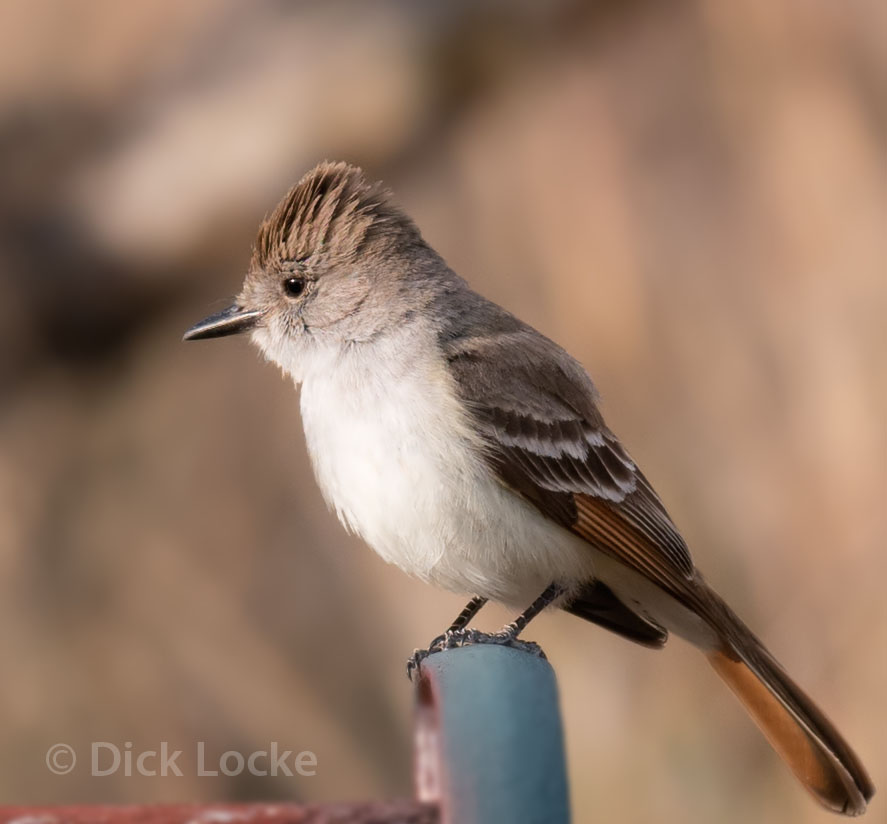
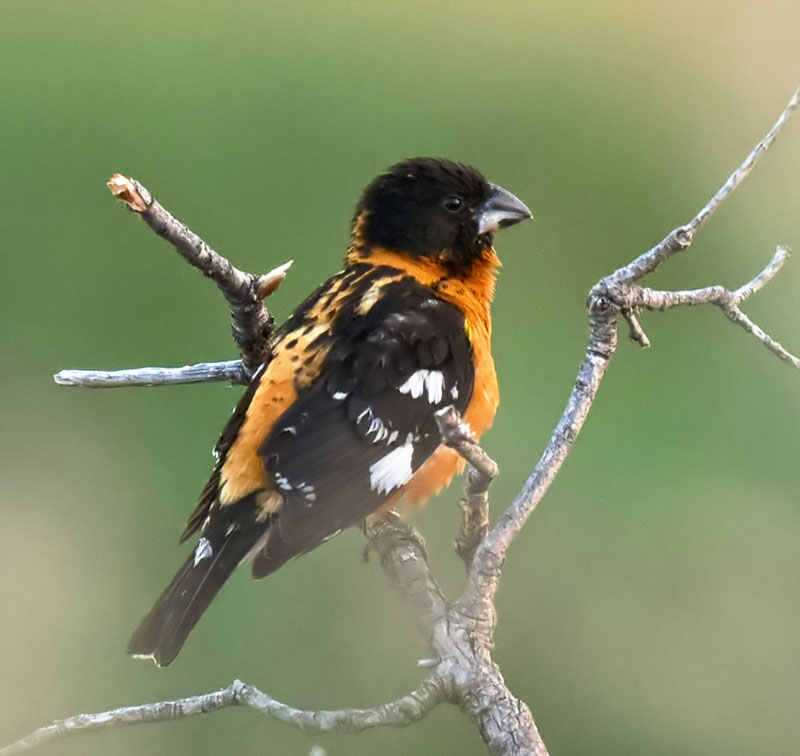
I listened to this guy's awesome song for about 20 minutes outside the Davis Mountains place Sunday right around sunset. I couldn't quite tell where he was, turns out hidden in a Juniper-ish bush. He finally showed himself for a few seconds before he took off for good. I had to dismount my big lens from the tripod, hand-hold, and stand on tippy toes to get this obstructed shot in very dim light. But it's a first for me; happy to get it
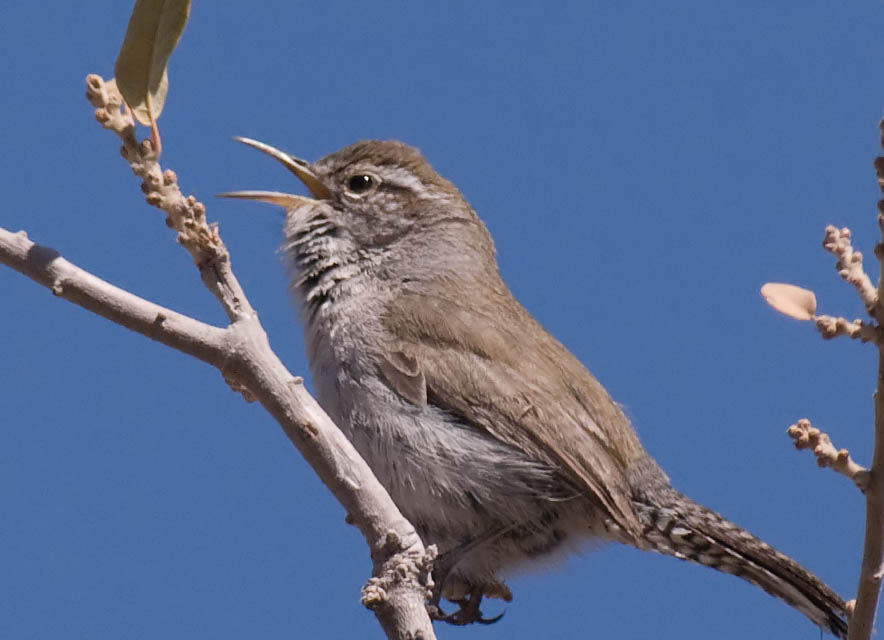
Per Gil: Bewick's wren, Thryomanes bewickii
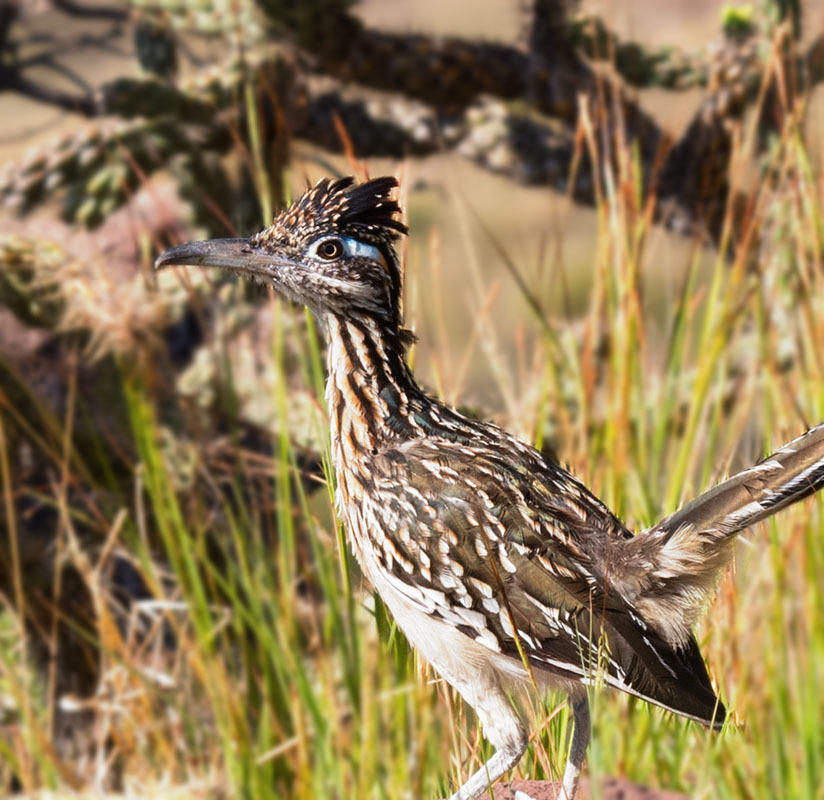
This guy was running around during our 9/15 trip, but I felt like Wile-E-Coyote trying to chase him down for a picture. This is one of the better shots I got off. Better shots are on my Roadrunner page.
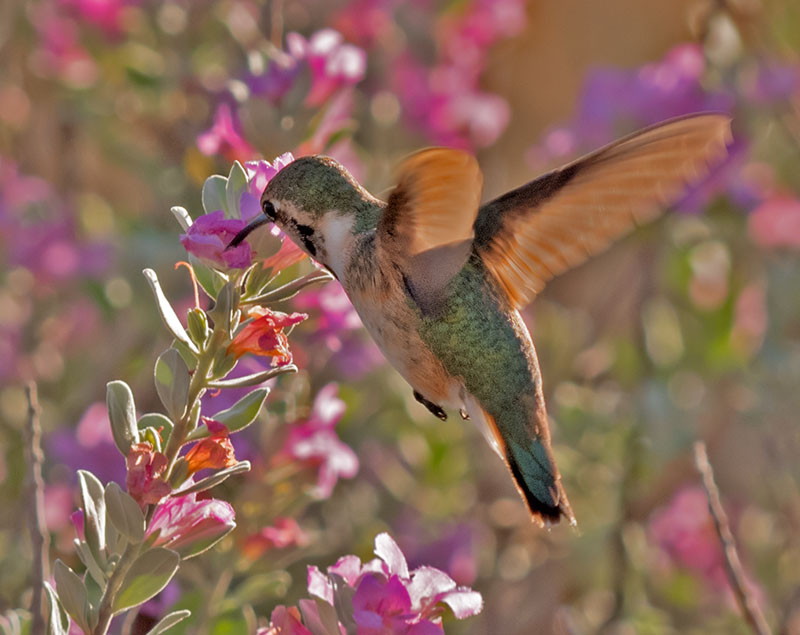
This guy showed up while I was shooting bees on the 2015 Davis Mountains trip. He was severely back-lit, but with some extreme Photoshopping I was able to end up with this image. My main hummingbird page is here.

The above was also captured on the 2015 Davis Mountains trip.
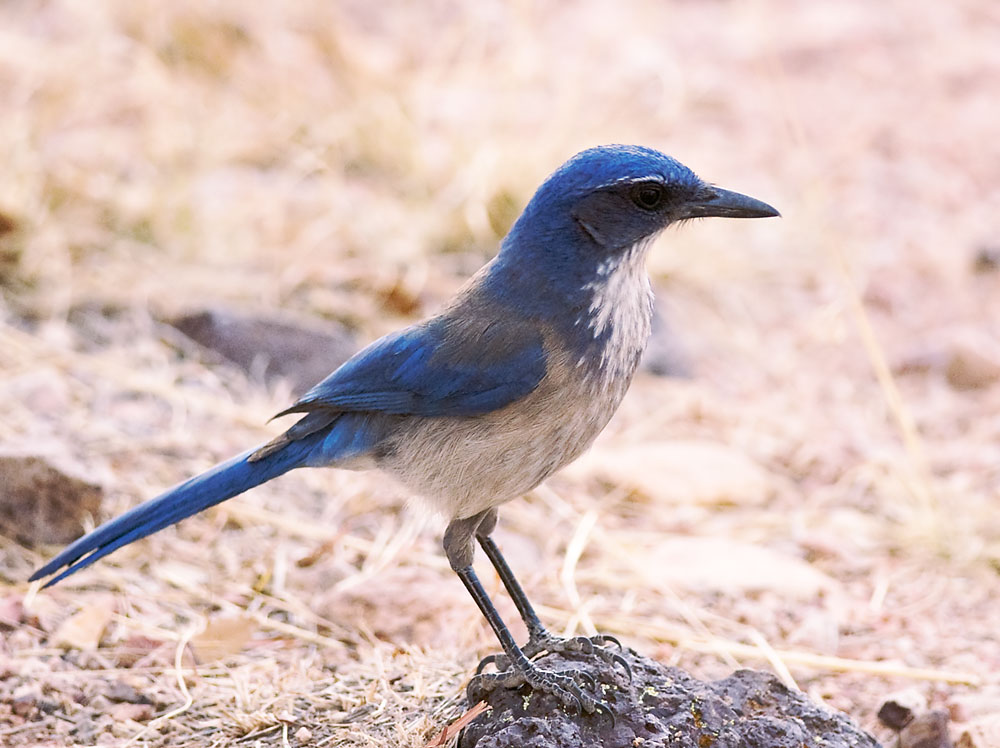
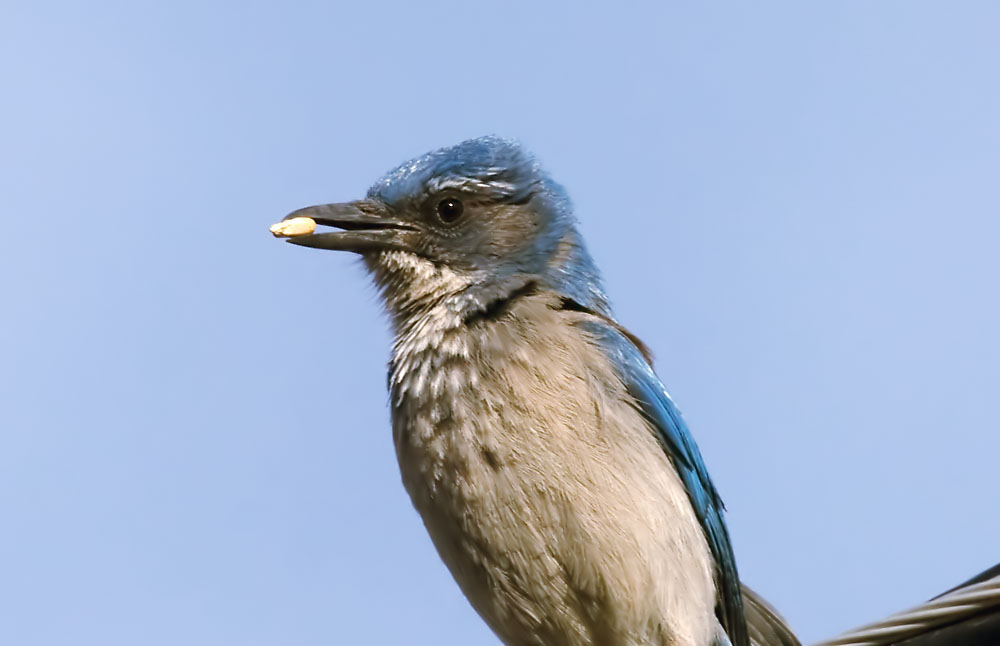
|
Yellow-rumped male Warbler Gil writes: This is a Yellow-rumped warbler male, molting into breeding plumage. You can see a bit of yellow on the throat, which would put it in the western race, formerly considered a separate species, the "Audubon's" warbler. |
|
|
A first year male per Gil. Compare with the Eastern Bluebird pictures here. |
|
| 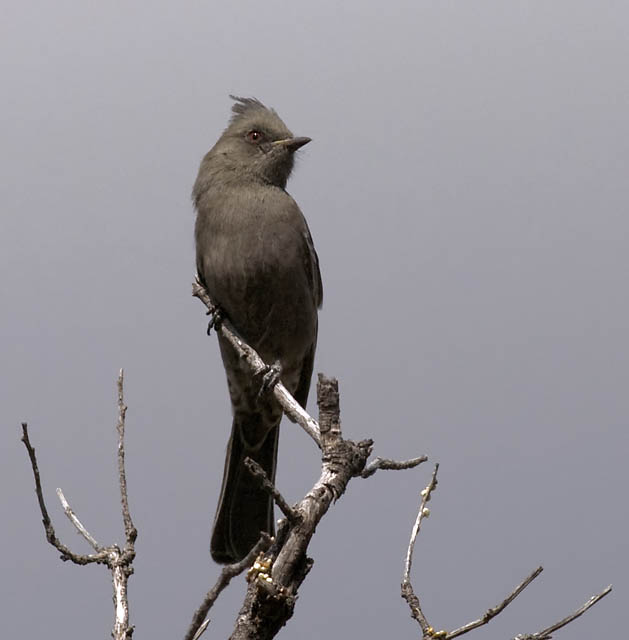 female phainopepla, Phainopepla nitens More excellent info from Gil: Phainopepla is a neat bird. It is the only representative of its very small family (Ptilogonatidae) normally found in the United States, although one other, the Gray silky-flycatcher has strayed from Mexico to El Paso at least once. Phainopeplas live in desert mesquites, sparsely wooded canyons, and dry foothill areas of the Southwest, from Texas's Big Bend area to inland northern California. They mostly eat berries, especially mistletoe, in the wintertime. The males have bright red eyes, and glossy black plumage with a flash of white in the wings when they fly. Both genders have a crest. |
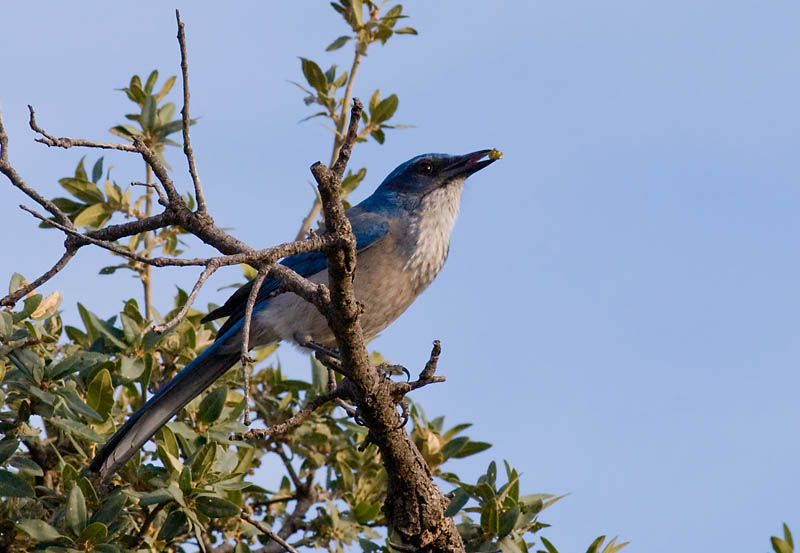 Western Scrub Jay with a Snack | 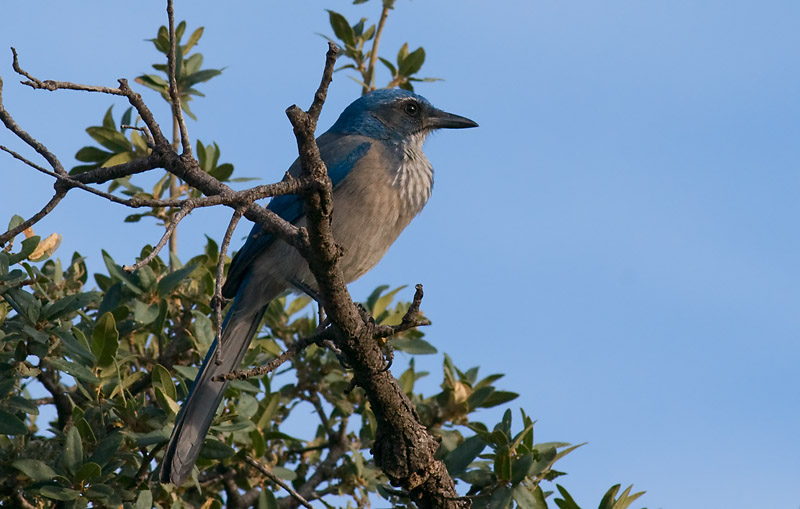 Western Scrub Jay |
| Jay discussion from Gil: Yes, you definitely have a Western scrub jay. The subspecies in west Texas is Aphelocoma californica texana and belongs to the "Woodhouse's" group of subspecies. This group may represent a separate species from the West coast subspecies, as they look and behave somewhat differently. My photo of the West Coast californica subspecies is (shown on the right). By contrast, the Texas form is duller overall, dirty gray below, with a less distinct white eye brow and much less distinctly marked blue on the breast. It tends to be a solitary, timid woodland bird. The West Coast form is much more bold and sociable, not only with other jays, but with humans. | 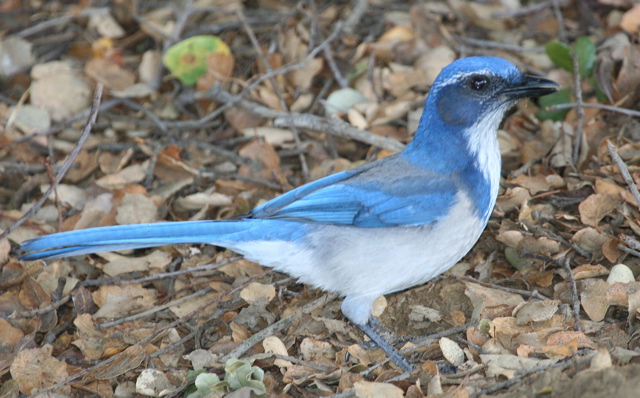 Gil's Western Scrub Jay Copyright © 2007, by Gil Ewing, used with permission See discussion on left. Not from the Davis Mountains, just to be clear! |
| |
 West Texas Astrophotography by Dick Locke |
|
 Davis Mountains Scenics | Travel Home |
Copyright © by Dick Locke except as noted. All Rights Reserved.
Image Use Information